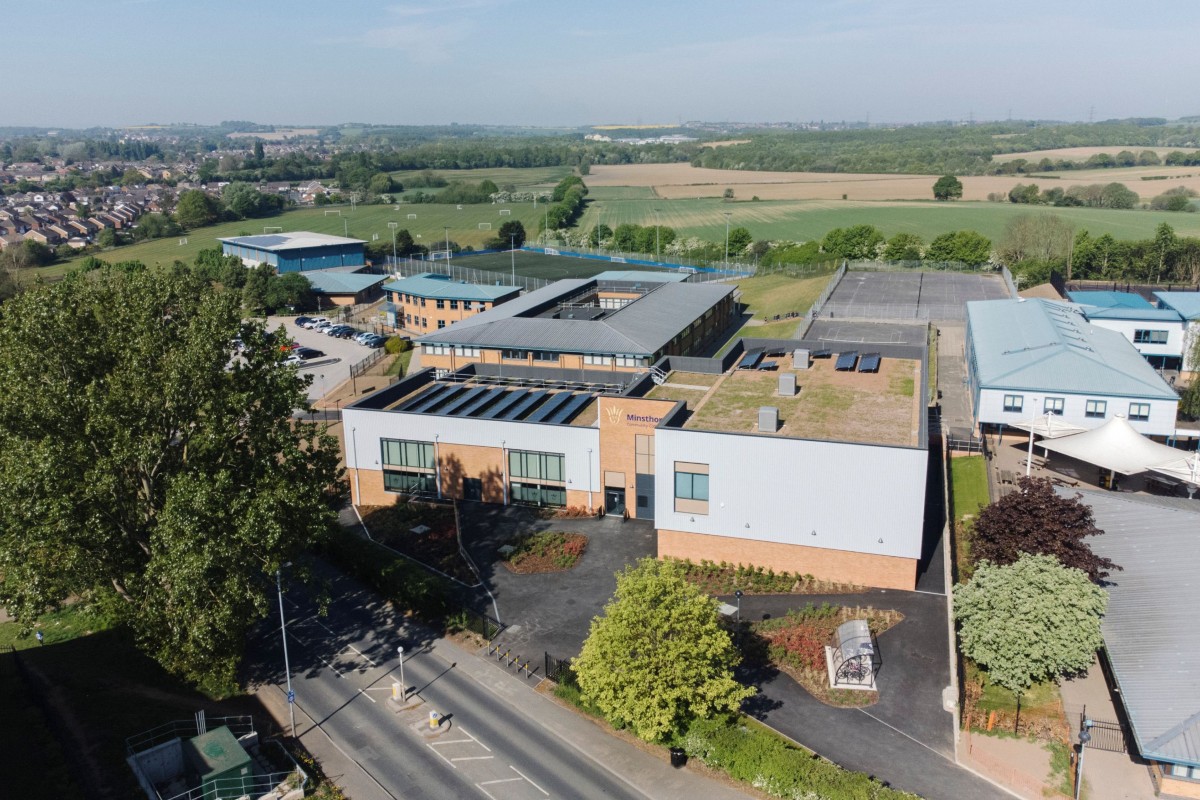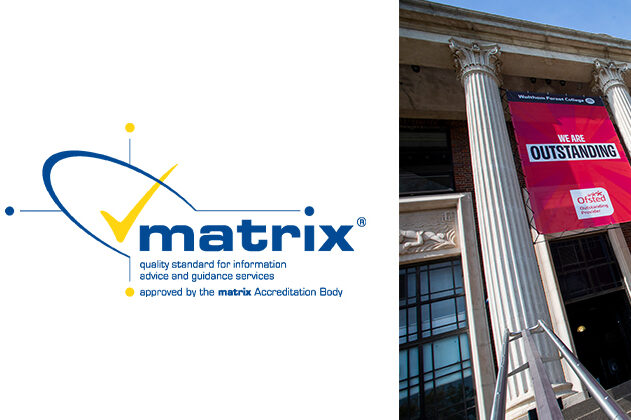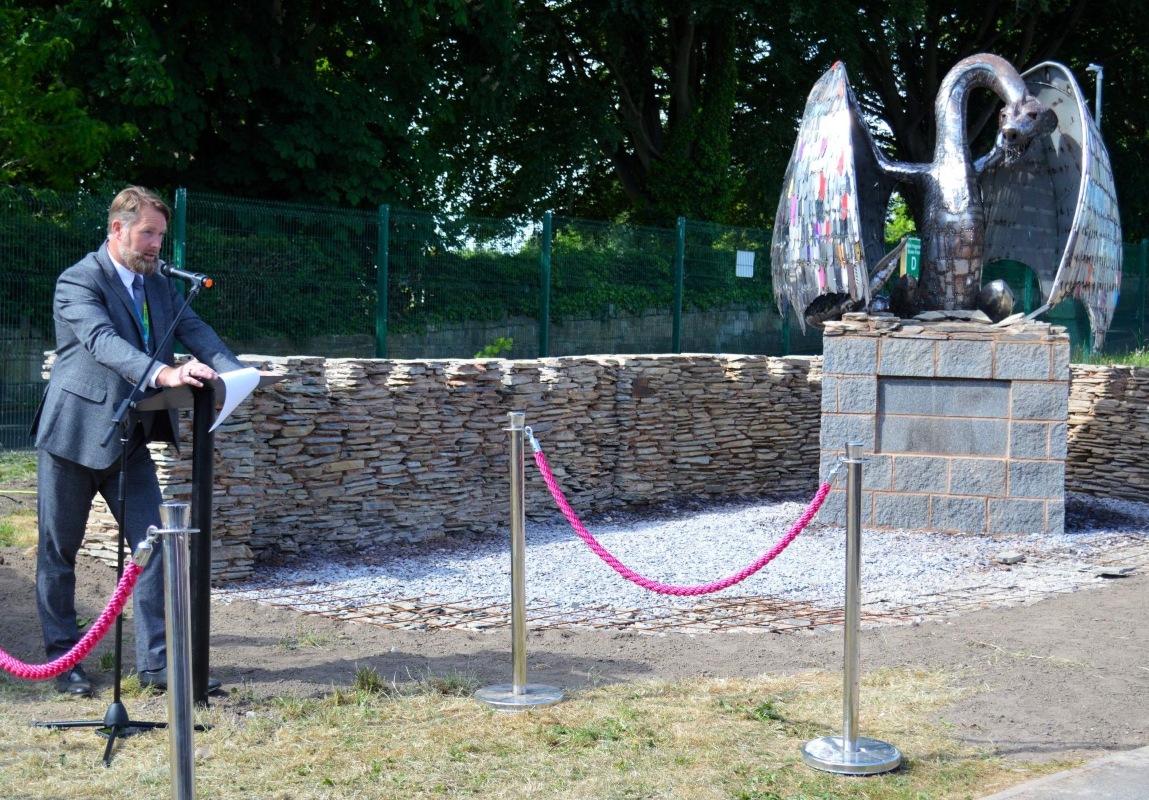Young people’s career readiness rising as result of careers education

- Survey of 35,000 young people shows 74% say they are career ready in Year 13, rising from 45% in Year 7.
- Awareness of apprenticeships doubles from 39% in Year 7 to 81% by Year 11.
- High quality careers education is helping to close the disadvantage gap, reducing NEET levels.
- Work experience has bounced back to pre-pandemic level, up from 47% to 65%.
Young people say they are now better prepared than ever before to move into jobs after school as a result of careers education, says a new report published today (Tuesday 7th).
A survey of 35,000 young people – the largest of its kind – shows their career readiness improves as they progress through school, rising from 45 per cent when they start secondary school in Year 7 to 67 per cent in Year 11 and 74 per cent in Year 13.
The survey is one of the key sets of data analysed in a new report looking at the progress and impact of careers education over the last 12 months – Ready for the Future – by The Careers & Enterprise Company (CEC), together with a foreword from Lord Blunkett, following his recent Learning and Skills report, and senior commentators from business and education.
The longer schools have been in the careers system the more breadth and depth of exposure students have to employers, improving their ability to make informed choices about their future pathways. More than four in five schools (81%) in a Careers Hub since 2018 engage with at least ten businesses, compared with 48 per cent who are not in a Careers Hub.
Young people who face most barriers benefit more from careers education. The impact of a school reaching all eight careers education standards (Gatsby Benchmarks) can now be measured. It shows the odds of a young person from a disadvantaged community being NEET reduces by 20 per cent. Such a reduction in NEET levels saves taxpayers £150m a year.
Analysis of more than five million careers interactions in schools also shows a clear relationship between high quality careers education and positive post-16 destinations – this effect is twice as strong for schools serving the most economically disadvantaged students.
Careers is now becoming more embedded in day-to-day lessons as careers education moves into the mainstream of school and college life. This means how and what students learn is becoming more relevant to how its applied in the jobs they are interested in.
More than nine in ten colleges linked maths (91%) and English (93%) lessons with careers. Three quarters of schools (75%) linked maths and English to careers and nearly four in five (79%) did the same with science.
Among the key findings of the report:
- Awareness of apprenticeships doubles from 39% in Year 7 to 81% by Year 11
- Apprenticeship awareness at 81% in Year 11 is now on a par with A levels 88%
- 60% of schools say students meet independent training providers up from 44% in 2018/19
- 79% of Year 11 students know the skills employer’s need
- 86% of Year 11 students have a plan for their next step.
Work experience has bounced back to pre-pandemic levels. Nearly two thirds of students (65%) in Year 13 have experiences of the workplace – a level last seen in 2018/19 and up from 47 per cent during the pandemic.
More than four in five employers (82%) say they are now running in-person workplace visits with three in five (61%) running one to two week in-person work placements.
There are early indications careers education is starting to steer young people towards choosing to pursue opportunities in areas of the economy and jobs where skills needs are acute.
The top four sectors of choice – healthcare, creative and media, construction and engineering – coincide with those with high reported vacancy rates and skills needs. This points to the potential for careers education to further smooth young people’s transition between education and employment and help ensure vacancies in sectors most in need of talent are filled fastest, leading to positive gains for the economy.
Baroness Nicky Morgan, chair of The Careers & Enterprise Company said:
“As a result of well-structured careers programmes, young people are becoming more career ready. This is real grounds for optimism.
“They now meet and know more about local employers and pathways like apprenticeships. Careers Hubs are having a real impact, helping to improve provision in schools and colleges and building young people’s social capital.
“Our focus is to build on this progress. To ensure all teachers benefit from careers awareness training and that young people can access high-quality regular experiences with business – further amplifying technical and vocation routes – so all our young people are ready for the future, through a system ready for the future too.”
Oli de Botton CEO of The Careers & Enterprise Company said:
“A consensus is now emerging about what good careers provision looks like, backed by a growing body of evidence about what works.
“It’s about the early and sustained involvement of employers and information about the diverse range of pathways to work, including the non-traditional routes. It’s about bringing careers into the mainstream of school and college life – linking lessons to life beyond education – and it’s about targeted support for those who face the most barriers.
“And when we get this right – which thanks to the hard work of schools, colleges and employers we are increasingly doing – everyone benefits. Learners access a rich and well-rounded education that sets them up for the future, employers build the talent pipelines they need and ultimately, with more young people on the right pathway for them – one where they can thrive – our economy becomes more productive.”
Commenting on The Careers and Enterprise Company’s new report, Ready for the Future: A review of Careers Education in England 2021/22, Baker Dearing Educational Trust chief executive Simon Connell said:
“The Careers and Enterprise Company’s report offers a constructive and encouraging insight into the state of careers education in the school sector.
“It was fantastic to read confirmation that children and young people’s career readiness grows as they progress through secondary school and that their awareness of apprenticeships doubles between years 7 and 11. This correlates with the experience of our University Technical Colleges, where staff have found young people are becoming increasingly aware of, and energised by, technical education opportunities.
“The introduction of Provider Access Legislation this year – after our chair and founder Lord Baker pushed through the clause which laid the groundwork for the law – has undoubtedly raised the bar for careers education. As will the Local Skills Improvement Plans, which shine a useful spotlight on skills shortages and career opportunities in each local area and which will be informing the curriculum of the new UTC Sleeves we are planning to open within existing secondary schools.
“We have also found, as has the CEC, that employers are increasingly willing to engage with careers education. Each of our UTCs is built from the ground up with employers who are keen to develop a pipeline of talent into their workshops, factories, and offices. This is especially the case when we are seeing such massive labour supply problems currently.
“The education sector and industry ought to be building a two-way street between the two of them: helping teachers gain more experience of industry and encouraging industry professionals to consider a career in education.”











Responses